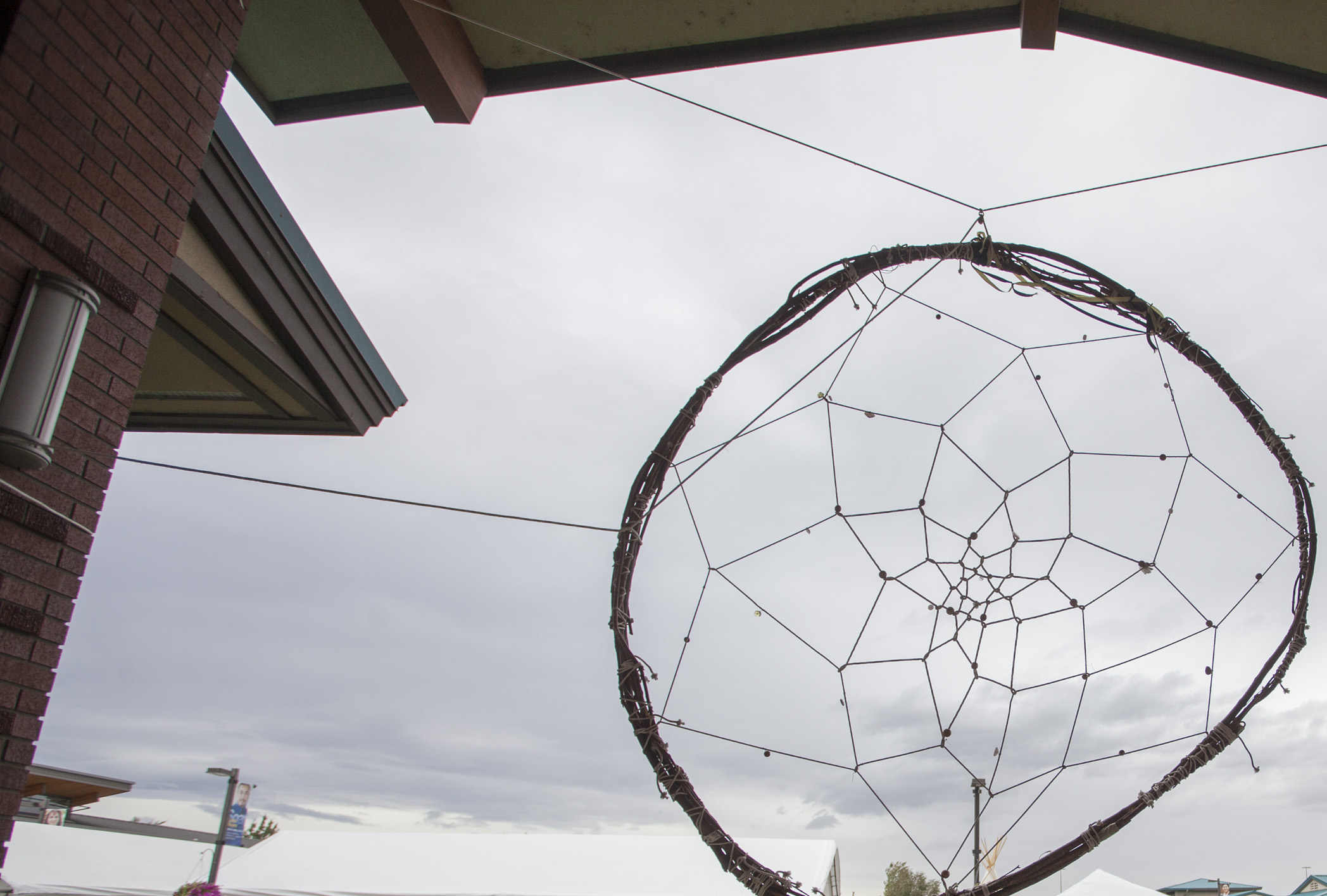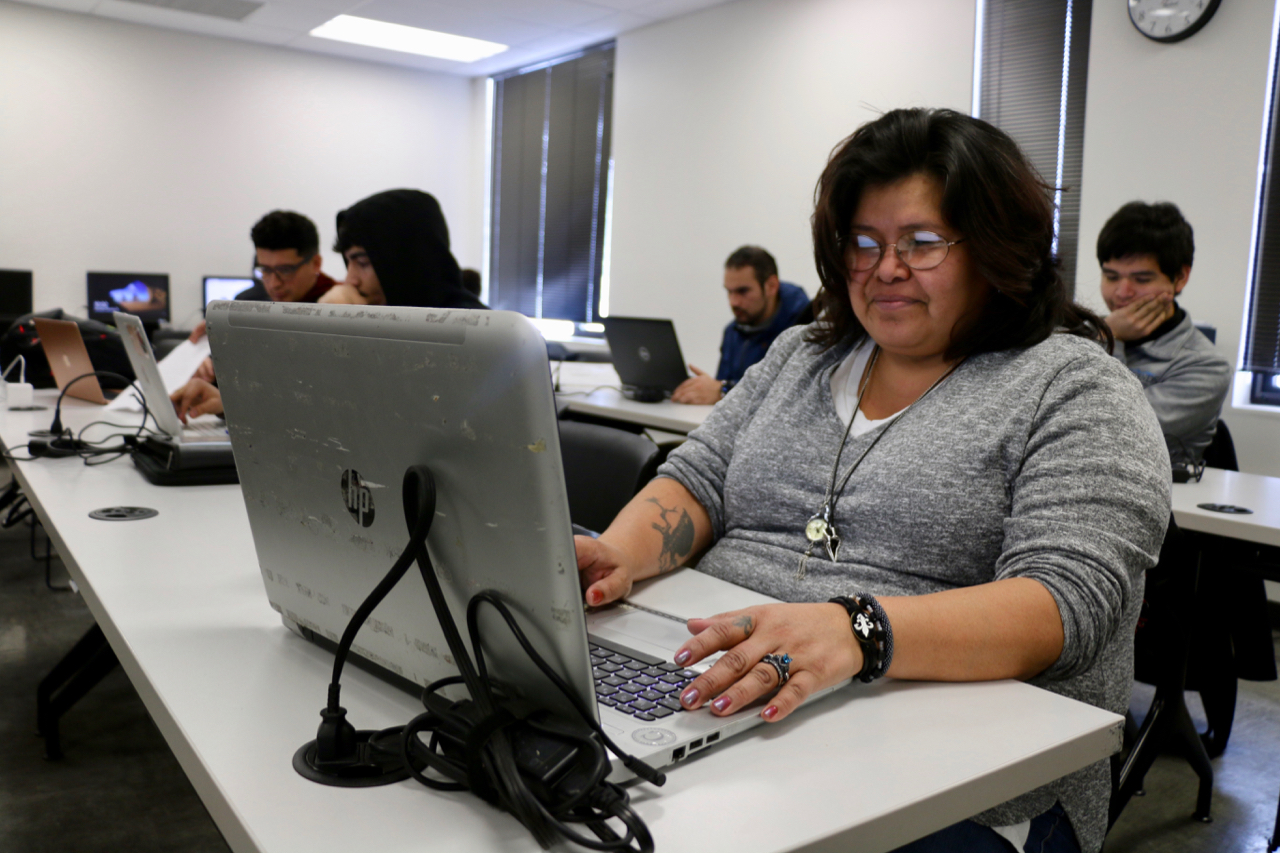Coming Full Circle
 Freshman Connie Batin was scrolling through her Facebook news feed when an announcement caught her eye and changed her life. It was a post about Heritage’s new Full Circle Scholarship, a guaranteed award for enrolled Yakama tribal members who have not previously attended Heritage that covers the cost of tuition at the university.
Freshman Connie Batin was scrolling through her Facebook news feed when an announcement caught her eye and changed her life. It was a post about Heritage’s new Full Circle Scholarship, a guaranteed award for enrolled Yakama tribal members who have not previously attended Heritage that covers the cost of tuition at the university.
It had been 20 years since Batin had been in school. In that time she raised seven children, built a career working for the Yakama Nation, and served on the Washington State Health Advisory Council. She had long wanted to go to college, but something always seemed to get in her way— most often it was the expense. When she saw the message, she knew that it was time to get moving.
“Every excuse I had ever had that stopped me from going to college to get my degree was gone,” she said. “I was inspired.”

Connie Batin started her first semester of college with three classes: English, math and a drawing elective.
Batin is one of a dozen new Yakama college students who started at Heritage in January because of the Full Circle Scholarship. Most are nontraditional students who, like Batin, had long dreamed of earning their degree, but were unable to afford the gap left between traditional financial aid – federal and state grants – tribal scholarships and the cost of tuition. These students are exactly why the scholarship was formed, said David Wise, vice president for Advancement.
“Heritage sits on the Yakama’s ancestral lands. We were formed by the vision and tenacity of two Yakama women. Our history and our future are tied to the people and the prosperity of the Yakama Nation,” he said. “Heritage is honoring our relationship with the Yakama Nation the best way we can, by providing educational opportunities for its citizens. The Full Circle Scholarship removes what is one of the biggest barriers that keep tribal members from going to college, the expense.”
The establishment of the Full Circle Scholarship was driven, in large part, by Heritage’s President’s Liaison for Native American Affairs, Maxine Janis.
“Maxine is one of the biggest advocates for our Native American students and was steadfast in her efforts to get this scholarship established,” he said.
The university works closely with the Yakama Nation’s Department of Higher Education to ensure that the application and selection process runs smoothly. The scholarship is open to enrolled Yakama tribal members who have to also apply for scholarships from the Yakama Nation and the Bureau of Indian Education.
“Heritage University is the first choice for Yakama students pursuing Higher Education,” said Elise Washines, program manager at Yakama Nation Higher Education Programs. “the university’s commitment to putting students first, to helping them achieve academically is demonstrated year after year with the number of Yakama students graduating from Heritage exceeding any other 2-year or 4-year college. With the Full Circle Scholarship in place, our students will be able to obtain their educations with full tuition support of both the University and Yakama Nation Higher Education.”
Initially, Heritage administration planned on launching the scholarship for fall semester 2019. But when word got out, the response was so overwhelming that they went into high gear and opened it up for a spring start. Given the timing of some of the requirements, applicants have to complete the Free Application for Federal Student Aid (FAFSA) as well as apply for the two Yakama Nation scholarships, the window to apply was only a few short weeks. Still, Batin and her fellow cohorts of incoming students jumped at the opportunity.
“I called the university the next day and started my application,” she said. “The whole process was great. Everyone, the admission counselors, my financial aid officer, were so helpful and made sure that I was getting everything done that I needed to do to start college.
Now, two decades after opening a textbook, Batin is fulfilling a dream and a promise made.
“I’m doing this to honor my mother. She would always say ‘You need to go to school. When are you going to go to school? I would tell her ‘I’ll do it someday.’ I’m so glad someday is here. I know she’d be proud of me.”

